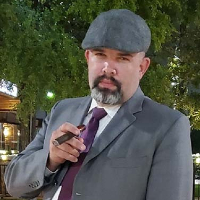Valley View White Collar Crime Lawyer, Texas
Sponsored Law Firm
-
 x
x

Click For More Info:
-
The Law Offices of Richard L. Cooper, P.A.
848 Brickell Avenue Suite 800 Miami, FL 33131» view mapDWI/DUI, Drug Trafficking, Felony Nationally Ranked Top 40 Under 40
With Richard L. Cooper you can expect a trusted confidant who will work diligently to fully understand your case and determine a road map to help you regain control of your life.
800-756-2781
Jason Van Dyke
Criminal, Juvenile Law, Expungement, DUI-DWI, White Collar Crime
Denton, TX Criminal Defense Attorney
Throughout a tenure exceeding sixteen years, Mr. Van Dyke has dedicated his legal prowess as the general counsel for factoring companies, commercial d... (more)
FREE CONSULTATION
CONTACTJeff L. Pierce
Internet, White Collar Crime, DUI-DWI, Criminal
Status: In Good Standing Licensed: 41 Years
FREE CONSULTATION
CONTACTBill Booth
White Collar Crime, Identity Theft, Merger & Acquisition, Household Mold
Status: In Good Standing

 Richard L. Cooper Miami, FL
Richard L. Cooper Miami, FL AboutMiami Attorney at Law
AboutMiami Attorney at Law ServicesCriminal Defense
ServicesCriminal Defense


